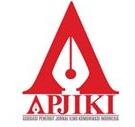Marketing public relations strategy for Islamic Hospitals in Bandung City
Abstract
Background: The increasing prevalence of hospitals with comparable service offerings has resulted in heightened rivalry within the healthcare sector. This competition prompted three Islamic-based hospitals in Bandung to formulate strategies that integrate marketing public relations (MPR) with Sharia principles while maintaining competitiveness. Few studies on hospital MPRs have investigated the significance of religiosity in public relations techniques. This indicates a requirement for research that comprehends how Islamic hospitals reconcile Islamic ethical precepts with marketing imperatives via public relations methods. Purpose: This study aims to identify and examine MPR techniques employed by Islamic hospitals in Bandung City to align with Islamic ideals. Methods: This study employed a multi-site case study methodology involving three Islamic hospitals in Bandung City: RS Al Islam, RSIA Al Islam, and RS Muhammadiyah Bandung. Data were gathered via restricted contextual observation, semi-structured in-depth interviews, and secondary documentation. Results: The findings of this study indicate that Islamic hospitals predominantly employ pull and pass procedures over push tactics. The push method is implemented selectively to uphold integrity and Islamic beliefs. This study affirms that Islamic hospitals build their image through physical symbols, media, community engagement, and institutional obligations such as certification and accreditation. Conclusion: Islamic hospitals employ MPR methods to sustain competitiveness; nevertheless, these strategies are not exclusively utilized as marketing instruments or for image preservation. They also embody the institutions’ principles and identities, thereby fostering public trust over time. Implications: This research could enhance people’s understanding of MPR, particularly within the healthcare sector and Islamic public relations
Keywords
Full Text:
PDFReferences
Adriansyah, A., Setianto, B., Lukiyono, Y. T., & Wikurendra, E. A. (2023). Proactive method for identification and handling of patient complaints with root cause analysis in Surabaya Islamic Hospital. Journal of Public Health Research, 12(4). https://doi.org/10.1177/22799036231208357
Aceto, G., Persico, V., & Pescapé, A. (2020). Industry 4.0 and health: Internet of things, big data, and cloud computing for healthcare 4.0. In Journal of Industrial Information Integration, 18. Elsevier B.V. https://doi.org/10.1016/j.jii.2020.100129
Agustiawan. (2022). Dampak promosi kesehatan rumah sakit (PKRS) terhadap loyalitas pasien di rumah sakit: Sebuah tinjauan literatur. Media Publikasi Promosi Kesehatan Indonesia (MPPKI)., 5(2), 134–138. https://doi.org/10.56338/mppki.v5i2.2046
Ahmad, K., Rustam, G. A., & Dent, M. M. (2011). Brand preference in Islamic banking. Journal of Islamic Marketing, 2(1), 74–82. https://doi.org/10.1108/17590831111115259
Ahmed, M., & Jan, M. T. (2015). An extension of Aaker’s brand personality model from Islamic perspective: a conceptual study. Journal of Islamic Marketing, 6(3), 388–405. https://doi.org/10.1108/JIMA-10-2014-0068
Alfarizi, M., & Arifian, R. (2023). Patient satisfaction with Indonesian Sharia hospital services: Halal healthcare tool and implications for loyalty-WoM. Asian Journal of Islamic Management (AJIM), 2023(1), 18–35. https://doi.org/10.20885/AJIM
Ali, M. Y. (2012). Halal branding: A study of muslim consumers perspective. https://www.researchgate.net/publication/236334075
Alserhan, B. A. (2010). On islamic branding: Brands as good deeds. Journal of Islamic Marketing, 1(2), 101–106. https://doi.org/10.1108/17590831011055842
Andini, S. N., & Darmawan, E. S. (2023). Analisis faktor preferensi masyarakat Bandung raya terhadap rumah sakit syariah. Masharif al Syariah: Jurnal Ekonomi Dan Perbankan Syariah, 8, 787–801. https://doi.org/10.30651/jms.v8i4.20859
Astiwara, E. M. (2024). Integration of Sharia Principles in islamic hospital management: Opportunities and obstacles. In International Journal of Science and Society, 6(4). https://doi.org/10.54783/ijsoc.v6i4.1413
Ayuningtyas, D., & Fazriah, H. (2008).
Analisis potensi pasar dan atribut pelayanan Rumah Sakit Islam Depok. KESMAS: Jurnal Kesehatan Masyarakat Nasional, 3(1), 16-22. https://doi.org/10.21109/kesmas.v3i1.238
Badan Pusat Statistik Jawa Barat. (2023). Penduduk Jawa Barat: Hasil Long Form Sensus Penduduk 2020.
Badan Pusat Statistik Kota Bandung. (2023). Jumlah Rumah Sakit Umum, Rumah Sakit Khusus, Puskesmas, Klinik Pratama, dan Posyandu Menurut Kecamatan di Kota Bandung. Https://Bandungkota.Bps.Go.Id/Id/Statistics-Table/3/blREWnZXbkEzWld0eVVUMDkjMw==/Jumlah-Rumah-Sakit-Umum--Rumah-Sakit-Khusus--Puskesmas--Klinik-Pratama--Dan-Posyandu-Menurut-Kecamatan-Di-Kota-Bandung--2022.Html.
Borges, M., Lucchetti, G., Leão, F. C., Vallada, H., & Peres, M. F. P. (2021). Religious affiliations influence health-related and general decision making: A brazilian nationwide survey. International Journal of Environmental Research and Public Health, 18(6), 1–10. https://doi.org/10.3390/ijerph18062873
Caprara, G. V., Barbaranelli, C., & Guido, G. (2001). Brand personality: How to make the metaphor fit? Journal of Economic Psychology, 22(3). DOI: 10.1016/S0167-4870(01)00039-3
Crisp, R. (2023). Religious preferences in healthcare: A welfarist approach. Bioethics, 37(1), 5–11. https://doi.org/10.1111/bioe.13114
Dewi, R., & Anisa, R. (2022). Pengelolaan media sosial oleh Humas Rumah Sakit Pandega Pangandaran dalam menyampaikan informasi kesehatan. Jurnal Ilmu Komunikasi UHO: Jurnal Penelitian Kajian Ilmu Komunikasi Dan Informasi, 7(2), 249–273. https://doi.org/10.52423/jikuho.v7i2.24576
Dewi, R., Anisa, R., Yustikasari, Y., & Safi, A. Q. (2024). Health promotion and communication activities in Al Islam Hospital Bandung. Jurnal Kajian Komunikasi, 12(2), 171–189. https://doi.org/10.24198/jkk.v12i2.57408
E-sor, A., Mahmudulhassan, M., Abuzar, M., Ahmed, E., Khondoker, S. U. A., Riazul, S., & Rahman, O. M. (2025). Islamic communication in the 21st century: Principles, methods, practices, digital transformation and contemporary applications. Bulletin of Islamic Research, 3(4), 571–594. https://doi.org/10.69526/bir.v3i4.354
Hamim, K. (2022). Etika komunikasi islami: Kajian kata qoul dalam al-Qur’an (R. Mas’ud, Ed.). Alfa Press Creative
Imran, M. (2022). Peningkatan reputasi dan citra rumah sakit melalui strategi humas. IKRA-ITH HUMANIORA : Jurnal Sosial Dan Humaniora, 6(3), 108–114. https://doi.org/10.37817/ikraith-humaniora.v6i3.2207
Indainanto, Y. I., Dalimunthe, M. A., Sazali, H., Rubino, & Kholil, S. (2023). Islamic communication in voicing religious moderation as an effort to prevent conflicts of differences in beliefs. Pharos Journal of Theology, 104(4). https://doi.org/10.46222/pharosjot.104.415
Islam, S., Muhamad, N., & Leong, V. S. (2023). Healthcare quality for Muslims: TCCM and TSR frameworks analyses. In Journal of Islamic Marketing, 14(3), 775–798. https://doi.org/10.1108/JIMA-11-2020-0352
Islam, S., Muhamad, N., & Sumardi, W. H. (2022). Customer-perceived service wellbeing in a transformative framework: Research propositions in the area of health services. International Review on Public and Nonprofit Marketing, 19(1), 219–245. https://doi.org/10.1007/s12208-021-00302-6
Ismail, S. A. (2017). Dampak implementasi sertifikasi rumah sakit syariah terhadap kinerja di Rumah Sakit Islam Sultan Agung. Universitas Indonesia.
Jenkins, E. K., Slemon, A., Haines-Saah, R. J., & Oliffe, J. (2018). A guide to multisite qualitative analysis. Qualitative Health Research, 28(12), 1969–1977. https://doi.org/10.1177/1049732318786703
Kirat, M. (2015). The Islamic roots of modern public relations and corporate social responsibility. International Journal of Islamic Marketing and Branding, 1(1), 97. https://doi.org/10.1504/ijimb.2015.068144
Komite Nasional Ekonomi dan Keuangan Syariah. (2021). Riset Preferensi Pasar terhadap Layanan Rumah Sakit Berkompetensi Syariah.
Kotas, P. A., Lu, J. F., Galep, J. A., & Furniss, C. D. (2018). Providing brand information via an offering service. Amazon Technologies
Kotter, J. P., & Heskett, J. L. (2011). Corporate culture and performance. Free Press.
Levin, J. (2016). Partnerships between the faith-based and medical sectors: Implications for preventive medicine and public health. In Preventive Medicine Reports, 4, 344–350. Elsevier Inc. https://doi.org/10.1016/j.pmedr.2016.07.009
Liu, R. L., & Minton, E. A. (2018). Faith-filled brands: The interplay of religious branding and brand engagement in the self-concept. Journal of Retailing and Consumer Services, 44, 305–314. https://doi.org/10.1016/j.jretconser.2018.07.022
Majelis Upaya Kesehatan Islam Seluruh Indonesia (MUKISI) dan Dewan SyariahNasional Majelils Ulama Indonesia (DSN MUI). (2016). Pedoman penyelenggaraan manajemen rumah sakit berdasarkan prinsip syariah. Bogor: DSN-MUI.
Maksum, M., Wahyuni, A., Farida, A. R., Hasanah, L., & Fuad, S. (2022). Sharia service as an added value: Response to Sharia Standard in Hospital Service. Samarah, 6(1), 423–448. https://doi.org/10.22373/sjhk.v6i1.13418
Ministry of Health Republic Indonesia. (2018). Peraturan Menteri Kesehatan No. 44 Tahun 2018 tentang Penyelenggaraan Promosi Kesehatan Rumah Sakit. Kementerian Kesehatan Republik Indonesia.
Mohd Yusof, Y. L., & Wan Jusoh, W. J. (2014). Islamic branding: The understanding and perception. Procedia - Social and Behavioral Sciences, 130, 179–185. https://doi.org/10.1016/j.sbspro.2014.04.022
Moons, P., Luyckx, K., Dezutter, J., Kovacs, A. H., Thomet, C., Budts, W., Enomoto, J., Sluman, M. A., Yang, H.-L., Jackson, J. L., Khairy, P., Subramanyan, R., Alday, L., Eriksen, K., Dellborg, M., Berghammer, M., Johansson, B., Mackie, A. S., Menahem, S., … Apers, S. (2019). Religion and spirituality as predictors of patient-reported outcomes in adults with congenital heart disease around the globe. International Journal of Cardiology, 274, 93–99. https://doi.org/10.1016/j.ijcard.2018.07.103
Murti, T. W. (2017). halal life style and global trade. The 7th International Seminar on Tropical Animal Production Contribution of Livestock Production on Food Sovereignty in Tropical Countries.
Nasrullah, M. (2015). Islamic branding, religiusitas dan keputusan konsumen terhadap produk. Jurnal Hukum Islam, 13(2), 79–87. https://e-journal.stain-pekalongan.ac.id/index_php/jhi/article/view/487
Nasution, M. L. I., Tarigan, A. A., Siregar, M. habibi, Nurbaiti, Harahap, M. I., & Lauli, R. A. (2024). Sharia Hospital business development strategy for islamic higher education in Indonesia. Trikonomika, 23(1), 27–38. https://doi.org/10.23969/trikonomika.v23i1.12922
Nirwandar, S. (2015). Halal lifestyle In Indonesia. UNWTO Seminars, The Contribution of Islamic Culture and Its Impact on the Asian Tourism Market Brunei Darussalam.
Odoom, P. T., Narteh, B., & Odoom, R. (2021). Healthcare branding: Insights from Africa into health service customers’ repeat patronage intentions. International Journal of Healthcare Management, 14(3), 663–675. https://doi.org/10.1080/20479700.2019.1688503
Ormond, M. E. (2011). International medical travel and the politics of therapeutic place-making In Malaysia. University of St. Andrews.
Putranto, E. D., & Aini, Q. (2024). Exploring the role of islamic hospitals in healthcare: A bibliometric analysis and future research directions. Indonesian Journal of Global Health Research, 6(5). https://doi.org/10.37287/ijghr.v6i5.4362
Rahman, M. K., Zailani, S., & Musa, G. (2018). Tourists’ satisfaction and loyalty intention at Shariah compliant private hospitals in Malaysia. International Journal of Tourism Sciences, 18(4), 295–311. https://doi.org/10.1080/15980634.2018.1555605
Rahmandani, A. N., & Setiyarini, T. (2022). Strategi marketing public relations (push, pull, pass strategy) Rumah Sakit Islam Surabaya. Jurnal Kajian Ilmu Manajemen (JKIM), 2(1), 44–49. https://doi.org/10.21107/jkim.v2i1.15511
Rizkahaj, H. P., & Wahyuni, I. I. (2022). Analisis promotion mix puspa iptek sundial Kota Baru Parahyangan. PRofesi Humas, 2(1), 45–56. https://doi.org/10.24198/prh.v7i1.37042
Rofi’ah. (2021). Islamic public relations. Eureka Media Aksara.
RS Al Islam Bandung. (2021). Home: Visi dan Misi. Diambil kembali dari RS Al Islam Bandung Web site: https://www.rsalislam.com/visi-dan-misi/
RS Ibu dan Anak Al Islam. (2022). Company Profile RS Ibu dan Anak Al Islam. Bandung: RS Ibu dan Anak Al Islam.
RS Muammadiyah Bandung. (2025). Tentang Kami: VIsi dan Misi. Diambil kembali dari Rumah Sakit Muhammadiyah bandung Web site: https://rsmb.co.id/visi-misi/
Shabbir, M. S. (2019). Nexus between customer preference and operation of conventional banks Islamic windows in Pakistan. Journal of Islamic Marketing, 11(1), 50–65. https://doi.org/10.1108/JIMA-03-2018-0063
Sjuchro, D. W., Surachman, A. Y., Dahana, W. D., & Nurfauziah, I. (2025). Building brand loyalty through community. PRofesi Humas, 9(2), 222–241. https://doi.org/10.24198/prh.v9i2.58569
The Lancet Global Health. (2023). Bridging the divide between religion and health care. The Lancet Global Health, 11(8), e1137. https://doi.org/10.1016/S2214-109X(23)00322-4
Tirtawati, A. A. R., & Mulyani, A. A. S. (2017). Strategi humas dalam meningkatkan mutu pelayanan rumah sakit umum Daerah Wangaya Kota DenpasaR. Jurnal Kajian Ilmu Komunikasi.
Wilson, J. A. J., & Liu, J. (2010). Shaping the halal into a brand? In Journal of Islamic Marketing, 1(2), 107–123. https://doi.org/10.1108/17590831011055851
Windasari, N. A., Azhari, N. P. D. A., & Putra, I. F. (2024). Assessing consumer preferences on halal service: the emergence of Sharia hospitals for Muslim consumer. Journal of Islamic Marketing, 15(1), 22–41. https://doi.org/10.1108/JIMA-07-2022-0192
Windasari, N. A., Sudrajad, O. Y., Umbara, A. N., AA, N. P. D., Lubis, B., Tsurayya, E. A., & Fathan, R. Al. (2021). Riset preferensi pasar terhadap layanan Rumah Sakit Berkompetensi Syariah. Komite Nasional Ekonomi dan Keuangan Syariah
Yuhanah, S., Muhajirin, M., & KH, H. A. A.-W. (2023). Analisis implementasi maqashid syariah pada rumah sakit berkompetensi syariah di Indonesia sebagai unique value preposition. Reslaj : Religion Education Social Laa Roiba Journal, 6(3), 1737–1745. https://doi.org/10.47467/reslaj.v6i3.5663
Yustikasari, Y., Anisa, R., Dewi, R., Subekti, P., & Ananda, F. (2024). Social media as a catalyst: Exploring the impact of instagram on health promotion practices in private hospitals of West Java. Sociologia y Tecnociencia, 14(2), 23–39. https://doi.org/10.24197/st.2.2024.23-39
Zulfikar, A., & Iqbal Sultan, M. (2017). Peran humas dalam meningkatkan citra Rumah Sakit dr Wahidin Sudirohusodo sebagai Rumah Sakit Berstandar Internasional. In Jurnal Komunikasi KAREBA, 6(1), 98-109
DOI: https://doi.org/10.24198/prh.v10i1.63121
Refbacks
- There are currently no refbacks.
Copyright (c) 2025 Retasari Dewi, S.I.Kom., M.I.Kom., Zahwa Putri Rafli, Renata Anisa, Yustikasari Yustikasari, Zulhamri bin Abdullah

This work is licensed under a Creative Commons Attribution-NonCommercial-ShareAlike 4.0 International License.
PRofesi Humas Indexed by:



 Editorial Office of PRofesi Humas: Faculty of Communication Science, Universitas Padjadjaran
Editorial Office of PRofesi Humas: Faculty of Communication Science, Universitas PadjadjaranJl. Raya Bandung-Sumedang Km. 21 Jatinangor, Sumedang, Indonesia 45363
WA: +6282316731181 (Chat Only) Telephone: +62227796954
Faxmile: +62227794122
Email: jurnal.profesihumas.fikom@unpad.ac.id
PRofesi Humas Supervised by:

 View My Stats
View My Stats








